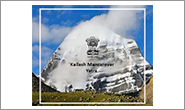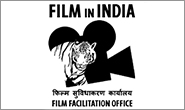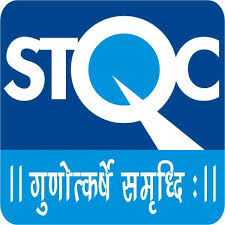Official Spokesperson (Shri Syed Akbaruddin): Good afternoon friends and thank you very much for coming on this holiday for most of you in the afternoon, at short notice. The External Affairs Minister has just returned this afternoon from China on what many of you thought was an important visit and we thought since none of you could travel with him, I had requested the External Affairs Minister if it was possible to brief you about the visit and the outcomes from that visit. He has kindly agreed and that was why we had this short notice because it was only this afternoon that he came back and he immediately agreed to this media interaction. That is the primary focus of this interaction. If any of you would like to ask questions after that on any other things, we will try and allow a couple of other questions.
With that I will request the External Affairs Minister to first make a few opening remarks and then we will leave the floor open.
External Affairs Minister (Shri Salman Khurshid): Good afternoon friends and thank you for coming here. First of all I must tell you we sorely missed you all in Beijing, a good place to report from. Some of your colleagues were there but not enough.
I will begin with sharing some good news with you. Almost on an impulse I mentioned to Premier Li - with whom I had an outstanding meeting, a very friendly, a very open and a very enjoyable meeting - that I felt that the media in our two countries must have a chance to interact a lot more with each other and to discover experiences that each other have of the other country, and that this would perhaps contribute to better people-to-people understanding and indeed facilitate the grand future that India and China can build together provided we align our positions, we understand each other better and there is a higher level of cooperation in every field - social, political, economic.
He immediately and promptly thought it was a very good idea, that we should create some mechanism by which Indian media can on a regular basis interact with the media in China. So, this I hope will happen. We have left it to officials to work out and we will certainly consult you on this as to how best we can go about it, perhaps step by step as we discover which is the most creative way of taking this forward. We will study also if there are any other models available either for them or for us. So, that is the news that concerns you directly and I thought I will give it s high billing and say that to you first.
Of course the primary purpose of the visit this time was to prepare for Premier’s Li’s visit beginning 19th of this month. It is something they emphasized and we acknowledged with gratitude and appreciation that this would be his first foreign visit after becoming Premier of China, and the first stop will be in India both in Delhi and Mumbai. The words that were used in our conversation were that this was very deliberately and very consciously after careful thought this decision that was taken giving India a very high priority.
I think that that was the general theme that one found in our conversations at different levels which included my meeting twice with Foreign Minister Wang Yi – twice I say because our formal meetings were fixed at 5, 5:30 in the afternoon going on to delegation talks and then finally dinner. But he chose to come to the hotel soon after I checked in and spend about 20 minutes with me to greet me as a very special gesture. I believe that that set the tone frankly to everything else that we did thereafter, as I said, at the delegation-level meeting in the evening followed by dinner.
Next day I had a very good meeting with the Special Representative who was Foreign Minister till recently and I had spoken to him on phone when he was Foreign Minister which again he recalled very fondly, Special Representative Yang Jiechi who will now in the near future be working with our Special Representative Mr. Shivshankar Menon to take forward their Special Representatives’ interaction, Round 16 that will now take place hopefully in the next couple of months.
Thereafter of course I called on Premier Li who again was extremely friendly, very warm, extremely welcoming in his demeanor and his words and the time that he gave to me. Essentially we were looking at of course the lay of the land for the visit. I assured the Chinese leadership that the visit was going to be a very significant one and a very successful one as we saw it. They felt and we agreed that the joint statement that is to be issued after the meeting of the two Prime Ministers and the delegations should be a strong message to our respective people, to the rest of Asia and to the world. This is a very very repeatedly emphasized, greatly emphasized point that they made. We have certainly responded in equally enthusiastic terms. But in order to make that into a strong statement sending strong messages of India and China’s intention to work closely together, they had laid out many points, agreement, MoUs that we could work on, and we in turn had indicated some on which there had been movement forward.
The Joint Secretary Gautam Bambawale stayed back because we thought it would require another day’s or perhaps two days’ work so that we can have as much done and not leave it to the last two, three days before the Premier’s arrival in India. I think that the convergence that we have on issues that actually flow from the intent to have extensive engagement on several fields - and I think these flow from the strategic, economic dialogue that is held regularly between us - we are actually ready with and we have brought it to their notice that we are ready with agreement on micro irrigation, on waste water management. We will possibly be ready also with the translation of classic and contemporary works.
They have responded very positively on the visa simplification and liberalization MoU which may or may not be ready in time for signing during this visit. But as we agreed, on their suggestion, that whatever we have in the pipeline we can indicate strongly our political agreement and commitment and the signing can then be done on our Prime Minister’s visit later this year to China. I think since 1954 possibly, this is the first time when there will be two-way Prime Ministers’ visits between India and China taking place. Therefore, I think this Year of the Snake will be a significant year as we see it.
We have in principle agreed that the Foreign Ministries will exchange an MoU on sister cities and sister provinces which we hope can be aligned with one major point on which there was prompt agreement and that was on Chinese investment, a Chinese industrial park in India for which we have promised the representatives of Ministry of Commerce can visit India soon and they can look around to see which point other than places they have already identified in the past for engagement could be suitable for a Chinese industrial park.
But that will be seen in conjunction with the attempts that we are making to balance our existing trade that is looking up, is growing very fast but where our concerns about balance remains. And they were agreeable that we have to very specifically address the issue of balance in our trade to make it sustainable. But to see it in conjunction with investment flows that can at least in the short-term address the issue of imbalance of trade but investment flows being both ways.
I had the opportunity to see and meet with officials of various private sector companies that are particularly in the IT sector, which are already doing good work in China and we hope that during the Prime Minister’s interaction we will be able to enhance that to a higher level.
There are two important matters on which we have agreed that we require more work, something on which more inputs are necessary at our end from other Ministries and indeed in bilateral terms with other countries that are involved. One is the Bangladesh-China-India-Myanmar Economic Corridor, something that in principle we also as our Look East Policy and connectivity with ASEAN are looking forward to being able to establish but on which some bilateral I think engagements are still called for particularly with Bangladesh. And that is an area we said we will continue to work, and it could at some stage involve all the countries working together. But certainly in principle an attractive idea, something that we would have worked on ourselves and are working on ourselves, but that we will be happy to engage with them once everybody is on board.
The other issue on which we have if you like taken a little bit of a pause for the present is the regional trading arrangement that they have suggested. That again goes back to the trade imbalance. We said that let the trade imbalance be addressed upfront as an urgent priority, and then of course we can move to the next stage which is the regional trading arrangement.
We did not actually specifically discuss this but because during the officials meeting that will take place today I can share with you that Chinese side had given us a border defence cooperation agreement some weeks ago which essentially consolidates and brings together many of the agreements and protocols and the arrangements and the mechanisms that we have in place, brings those together, rationalizes them and takes them forward somewhat. We also have some suggestions there based on our experience of the past few years, and we have in turn given them some suggestions, indicated certain points in the draft that need to be reworked upon. Hopefully this will be in their hands today and, therefore, this is something on which we can work. But this was not part of the discussion that I had had, or on the agenda specifically.
One important, modest but significant move that we have seen is our discussions on the trans-border rivers. The good thing was that the Chinese side at the highest level reaffirmed their intent to ensure that India’s downstream interests are not affected adversely in any way. They have heard us out very carefully about either enhancing the mandate of the existing arrangement that allows for sharing of flood time hydrological information, expanding that in order to cover some of our concerns, or look at a separate mechanism that would address our concerns.
The movement forward we have now is a clear indication from them that this is something that they are committed to, that they are going to be ever so careful about India’s interest and that this requires in some manner either an enhanced mandate or an alternative way in which our concerns can be addressed. I think this is the first time that we have actually specifically face-to-face been able to move forward on this particular thing.
We both took note of a very interesting dimension in our relationship which is the movement forward on multilateral and matters concerning security in our region. We both agreed that our first dialogue on Afghanistan was a very good one, a successful one; and that we would be working more closely together with them as they move towards the next Istanbul Process meeting that will take place in China. I think that our understanding is converged. Largely there are areas in which we need really to discover more as to what our positions can be. But both on Afghanistan as well as on Syria there were vast areas of convergence and articulation and I hope that we can work further on some of these issues, particularly since many fast changing movements are taking place. On a humanitarian front the Chinese were very good to have told us that they have released two Indian nationals who were in custody in Yiwu and that had become a little bit of a humanitarian concern. We felt that they had suffered enough. For personal reasons both of them had been allowed to travel to India and then went back. But the Chinese were generous and good. As a gesture of goodwill, they shared with us that they have released the two nationals who are now on their way back home.
Because of this I thought that I would go a little further and I requested them to consider whether the same could be done for all or for some at least of the six Indian diamond merchants who are also incarcerated in southern China. The immediate reaction that we got was that they would look at it in as positive a term as possible and get back to us. We had hoped that this could be done before Premier Li’s visit to our country.
The most critical and important thing is of course the manner in which we were able to discuss our recent problem on the Line of Control. I think we were on the same page, China and India, completely in saying with a degree of satisfaction that the mechanisms in place for dealing with such issues and such episodes or incidents have worked, that we both have the confidence that they will work, and that they did work was a matter of considerable satisfaction.
It was also very clear that we both believe that our vision and our commitment is to the larger picture between China and ourselves, and that we are both equally determined that such an incident should not be allowed to stand in the way and to obstruct a very meaningful growth in our relationship, signals of which and indications of which are there for all of us to see both in terms of growing investment, trade and much greater contact between our people over the last ten years.
I did say to the Chinese side and I shared this with the Premier also that we felt it was important to analyze our respective systems to work out why such things happen or indeed why the most recent incident happened. We would in a sense be able to take some lessons from the manner in which it was satisfactorily resolved. We should also take some lessons about why it happened, how we should ensure that such things do not get repeated, do not happen, and if at all despite best efforts something of this nature happens that we are able to address it with greater urgency and with less passage of time than we had to suffer this time, which was three weeks.
I think that my intention was to be clear, to let our Chinese friends know that this is something that was extremely important because it does not just remain as a statistic, it becomes part of perceptions about our people and I assume about their people, about us. We were not doing a post mortem and we were not apportioning blame. But we had certainly felt that it was important keeping the larger interest of our two countries in mind that something that caused enormous concern to our public opinion should be addressed, of course taking advantage of the mechanisms that we have in place.
I did leave it to them to have this matter reflected upon in greater detail when the Special Representatives meet because the entire background and the context in which this discussion has to take place is familiar to them and they have the domain knowledge to be able to deal with it more specifically.
All in all I believe it was a very successful trip. I think we have prepared well. We can look forward to a very meaningful visit of Premier Li ten days from now.
Thank you very much.
Official Spokesperson: The floor is now open for any questions that you may have.
Question: Your talks in Beijing have raised the bar for a very successful visit by Premier Li. Looking ahead, what do you think are some of the contentious issues on which there are still differences and what is the way ahead on those issues? Also, did you discuss the need to intensify strategic communication?
External Affairs Minister: I can clearly say that we do not have any prickly issues, major issues of significant difference that could be seen as obstacles. Wherever we are still not ready on both sides, still not ready on articulating an agreement, we are certainly ready to indicate that is our objective and that is our aspiration. The important thing is that this was understood by them and from their point of view understood by us, that some things are done and ready, some things will need to be clearly indicated as our objectives for Prime Minister Dr. Manmohan Singh’s visit to China later in the year, and there are some things on which in principle agreement must be indicated although we all know that it will take some time.
And the Premier said to me that the Chinese saying that journey of a thousand miles begins with one step I think indicates how they see every step forward as being significant and important although we both realize that we have a long journey to make.
Question: You said that India has made certain suggestions on the border defence cooperation agreement. Could you share with us what those suggestions were? Does it mean that the previous mechanisms in place to solve such incidents as happened recently are not delivering?
External Affairs Minister: I think the idea is to develop and to work beyond the success of those mechanisms and the experience of the success of those mechanisms to perhaps raise the bar of ambition for working more extensively, more effectively and taking it much further than we have in the past. As I have read the draft, it does not appear to be replacing everything that is already there, but as periodically we have had the 1993, 1996, 2005 etc, moving up based on experience of the past and really in the direction that was given by those protocols and agreements.
There is of course something that I believe easily would be appropriate to consider when we look at any new agreement, is to see if there have been some points at which our level of satisfaction could have been greater. So, if we emphasize those dimensions, we would obviously be better off. But there is not a sense that there is a disappointment or a failure of the mechanism we have in place. It is indeed our sense of satisfaction that our mechanisms have worked, have brought us thus far and now it is a question of going even further.
Question: In the context of the recent standoff and the change in the leadership in China, do you think that the boundary issue has remained in the background on a track all by itself and the relationship has gone ahead on economic, trade and other track; and that this will change or at least slow down and the boundary issue will once again come to the fore?
External Affairs Minister: That is not my impression. I think that the two track approach - if one can describe it as a two-track approach one not impeding the other but obviously helping each other if you go along and if you are moving in the right direction because the gravitational pull of the success of one will inevitably be felt on the aspiration of the other. I do not think there is any reversal in that process. I do not think there is any indication of a slowdown from either side. If at all there is something, there is an expression by the new Chinese leadership that we need to move faster. That is the reason perhaps why they have given us that agreement.
But faster must also be read with surer, steady and sure if you want to speed up what you are trying to do. It must again fall back on the experience of what we have done. Therefore, the 16th round of SRs meeting would be able to reflect on this and assess and judge it a lot better than you can in normal conversations.
Question: You have mentioned about trade and a delegation coming down to look at investments in various sectors. Will the Indian government allow unhindered investment opportunities to the Chinese in India?
External Affairs Minister: I do not know what you mean by unhindered. The extent to which we allow investment from anywhere else, there is no exception for China. But obviously trade must come with travel and that is the reason why liberalization of visa regime is important because business travel must become easier. You can always pitch for journalistic travel becoming easier and I would be very happy to support you on that, but I have to admit right now it was not a priority. Business travel is a priority. I think if that begins and the investments begin, we would get a very special stride forward.
Question: There are certain sectors where India feels that investment should not come from the Chinese.
External Affairs Minister: Those are areas where between Finance and Home they have special concerns not relating to China alone but the sectors themselves and also from different parts of the world. But those are things that are reviewed from time to time. I think we should not have a theology on this. We should really work on it in a practical sense. We are doing that in the visa regime for many countries. Some more countries are hoping and expecting that we will do it for them. I think we need to rationalize; we need to be more confident about ourselves and confident of our systems, and be clear that what is important is there must be much greater contact between the peoples.
Question: My question is regarding the security arrangement in the international and the regional security. You spoke about Afghanistan and Syria as an example. Can you elaborate a little especially post-2014 if there is any mechanism between the two countries; and also regarding Syria, especially after the meeting of the Russia and the US for the conference by the end of this month?
External Affairs Minister: I think these are still issues that all of us are reflecting on. There are no ready answers with anyone of us on our questions both for Syria as well as for Afghanistan. We are in fact closely engaged with the Afghan side to understand what happens when we talk to other stakeholders in Afghanistan at the Istanbul Process conference for instance, or with China as we have done, or with the United States of America. We tried to understand better what will happen after 2014. But frankly I do not think there are easy answers being given right now. Therefore, there has to be a wait and watch.
Meanwhile, our commitment as far as development partnership is concerned, the two billion dollars that we are investing in Afghanistan continues. We expect to complete the projects like Salma dam and also the Parliament building well in time before 2014 elections. The small district level projects also are in process.
As you know, in my recent visit to Iran we indicated that Chabahar development will be contributed to by India because we see that as an alternative route particularly to western part of Afghanistan where we could have major investments in time to come. So, we are not putting anything on pause waiting for all the answers. As we continue to work on development partnership and enhancing different areas of our relationship with Afghanistan, we are still waiting to understand better. But we have at least been able to share how our perception would be somewhat different from perception of many other countries but it also overlaps with the perception of other countries. China I think is quite close to us in our perception about Afghanistan.
Question: Considering that you got so much positive signals from China that the new leadership wants to take forward our relationship, did you get any sense why the border incident happen? Was it that part of the army wanted to do it or what? Did you get any sense?
External Affairs Minister: To tell you the truth, I thought the best thing was to flag for them that it is important that we should figure out why it happened. That it happened, we have agreed. That it was reversed, we have agreed. That it was reversed using the mechanisms that we have in place and they worked successfully, we have agreed. But why it happened I think is important. I do not think that if you reflect back on incidents that have happened in the past, this question as to why it happened has ever been asked. Usually the question that is asked is, can you please reverse it, or that if you do not you know what, etc., etc. But nobody has ever asked why it has happened. We raised it for the first time. And you will understand that raising it for the first time you cannot expect an answer there and then. But we raised it, we flagged it, and we said that we both need to do an analysis of why it happened. The analysis then perhaps can be converged and shared and then we would have a better idea. And while all this is going on, we can improve our attempts and our ability to resolve the bigger issue, the larger issue which is finally what we have to resolve. This is only an intermediate arrangement that must address the ambience and the atmosphere as we moved to address the big issue.
Question: You spoke of the trans-border rivers. Have we suggested any species of mechanism to them whereby this issue can be dealt with bilaterally?
External Affairs Minister: No we have not. What we have suggested is that there must be a mechanism and we have left flexibility in saying the existing mechanism can be expanded, the mandate can be expanded to address what we are hoping will be addressed, or an alternative mechanism can be put in place. So, it is the first time that we have seen some movement, and I certainly saw sensitivity to India’s concerns, and I think also anticipation that this is an issue that India would want to raise. Therefore, they had obviously considered the issue. They did not say let us think and come back to you. They immediately said we understand your concerns, we are committed to ensuring that there is no adverse impact as far as your downstream rights are concerned, but something needs to be done, we agree. How it can be done, we can work on it. I think that is a movement forward.
Question: Was there any regret in the Chinese that they had actually intruded and pitched tents in Indian territory? Did they even have a tone of a little bit of regret that they had done what they had done? And also, it is a fact that before that, between January and March, there were five face-offs between border patrols - three in January and two in March. And on the 1st of April there was a sort of deep intrusion in that area. Since India knew about it and reports went right up on the 12th of April, were they seen as warning signals? Did India do anything about it then?
External Affairs Minister: I do not want to expand looking at our border issues and problems to other incidents that may have happened. In the articulation that we placed before them we did say that it is important that one incident in one place does not get linked with issues or incidents anywhere else, and that it is important that we do some systems analysis to find out why it happened. But really the trip was not to score points. The trip was to ensure that we are clear about what we want to say and that it is conveyed clearly.
When you talk about note of regret and so on, you know Chinese are better face readers that we are. They may have read something in my face but I certainly was not able to read their face. I can only say this to you that there was, at least I sensed, an atmosphere of relief and a desire to move forward. And I think that it would not have been fair on my part that when we have only ten days left to receive the Premier, that desire to move forward should have been retarded by me. But the points that we wanted to make I think were very clearly made and understood. We would like to see what the SRs can do with it as we move forward.
Question: Sir, I wanted to ask you about the industrial park that you spoke about with the Chinese. I understand that this must be in a very preliminary stage. But given the fact that we have a major trade imbalance, how does this work out?
External Affairs Minister: The trade imbalance issue is already being addressed. Trade imbalance issue really requires market access issues as far as pharmaceuticals are concerned, as far as IT is concerned, and those the Ministry of Commerce is already addressing. That is the best that can be done immediately. That is very clear. But in addition to that, since we wanted an industrial park idea to be taken up and they brought up that idea, we were very happy that there was convergence and that that convergence could take us in the right direction. My people told me that if we can pinpoint and agree on this, Chinese will be able to deliver the industrial park a lot faster than most other countries, which is a good idea. I do not know if my State of UP will be happy to snap it up but I would be very happy if my State of UP snapped it up.
Question: You were quoted in Beijing as saying that you did not raise the issue of why they did what they did because there was some blame and you did not want to get into the blame game.
External Affairs Minister: That was on the first day. I had a second day as well and what I am telling you now is what happened in two days. But the report was on the first day.
If you raise everything on the first day, you do not get a chance to raise it on the second day. So, we took it step by step. On the second day I raised all that I have shared with you and I think satisfactorily. The words I see prominently in our discussions are: sense of relief, desire to move forward, let us think big.
Question: If you think that they wanted us to work faster on the boundary agreement, does that mean that in all these talks that we have been having, we have been stalling a resolution or we have been going slow on the resolution on the boundary agreement because that was not something that we took back in all these meetings? Third, the new defence cooperation agreement that we are working on, will that stop the kind of incursions that we saw in Depsang recently? Is that something that you are putting in?
External Affairs Minister: When I said to them that there must be lessons that we must learn from what has happened and those lessons must inform whatever we do in future, a systems analysis of this needs to be done on both sides, I would imagine that that is what it meant. And I did not find the Chinese working at anything that we said. I did not find them specifically giving an alternative formulation. But at the same time it would be wrong if I said that they just ticked everything I said.
I think there was very extensive convergence. And certainly if I am assessing the ground that we have prepared for the two Prime Ministers’ meeting, the Prime Ministers meet after Foreign Ministers because they do more than the Foreign Ministers can do, so I think we prepared very good ground for things to happen. The takeaway expression that I gave them was that I am very glad that I have come here in Spring time because what I see is hope all around and beautiful Chinese blossoms. And what the Premier said to me was the world is thinking big, let us think bigger than them. This is what the Premier said to me and I thought that these are the two lines that summed up my two days there.
Question: …(Inaudible)…
External Affairs Minister: This fast, faster, fastest did not come up but certainly it was not an attitude that look this will solve itself one day do not worry. Let us keep that in mind, let us move fast on that as well. I did not get any indication that they felt we were stalling, we were slow, that we were not willing. The formulations that these are historic issues, they are complicated, they take time to resolve, those formulations were repeated. And I think that there is not any major departure there. But yes, not just from my meetings but even otherwise, we have received some signals that they would like to solve a problem. The exact speed and exact velocity etc., I think the SRs will get a better chance to judge.
Question: You said that there was a convergence on Afghanistan. Was there a convergence on Syria as well? If there was, does it take you closer to the Russian and Chinese position on Syria?
External Affairs Minister: I think there was convergence on Syria but at the same time there was some lack of clarity as to how things are moving now that there was statement between the US and Russia. But at the same time while that statement that there should be an attempt, there was also a statement that was carried there which said that Assad cannot be party to this thing. So, I think the contours were still unclear both to them and to us. But the basic principle that we can only solve Syrian issue not from outside but by somehow creating conditions conducive for a Syrian dialogue between the Syrian opposition and the ruling establishment, I think on that there was complete convergence.
Question: From your opening remarks, you seemed to have sort of a foot down position on the regional imbalance being corrected because some of the proposals, which you said yourself were pretty exciting, have been put on hold until that is done. So, were you able to read some kind of a timeframe with the Chinese apart from the general assurance that they gave you that they are going to move forward on this?
External Affairs Minister: I think the area of trade imbalance is a complicated area and the Commerce Ministry has been dealing with it. I have merely said to them that I would like to flag for Commerce Ministry your attempts to move forward on these areas which would require that the trade imbalance is addressed more effectively. But we did not go into further details on this. I was told that market access on pharmaceuticals and IT was critical and I did flag that and they know. They know very well that that is what is critical. They are talking a great deal about education; they are talking about tourism; they are talking about greater airline connectivity. So, there are many issues of this nature which I will pass on to my colleagues and see if we can get something interesting.
Question: Do we have a geological profile of the area where the Chinese tents were put up? Do we know what minerals are there beneath the surface there?
External Affairs Minister: Broadly speaking yes, we know what is there. It is pretty barren and it is at present pretty unpromising in terms of what it offers except a very difficult stay in the night if you pitch a tent there. But that they came to drill for oil is not something that we seriously … Our idea of where the uranium is that can be accessed by us is different from the Tibetan Plateau. But I am not going to take a final guess on this. I am sure there are people who are better equipped to be able to tell us.
Question: Minister, you will complete 200 days in your office next week.
External Affairs Minister: Very tough days!
Question: You have been to 16 countries in four continents including the capitals of three permanent members of the United Nations. What do you think have been your three top achievements in the last 200 days?
External Affairs Minister: I think that would be very immodest but I can say with some satisfaction that I have had enormous assistance, help and understanding given to me by Foreign Ministers of the countries that I have visited. I think I have been able to develop an interesting chemistry with a lot of them. With many I am on terms such as their being able to send me SMSs and call me on my mobile phone and I can call them back. In some cases it has delivered us away from seemingly crisis-like situation developing. Italy was one such case. I think I have certainly received enormous amount of candour in expression of aspirations as well as caution and inquisitiveness about India’s plans and India’s policies. It has been a very satisfactory experience, these 200 days. But you need 2000 days frankly to do this job well and I have not got 2000 days.
Question: After your talks with the Chinese leadership, do you still feel it is a localized incursion by the Chinese troops and how effective was the hotline between India and China in resolving the standoff?
External Affairs Minister: You cannot give away strategic secrets about hotlines and things like that. But I think yes that is the impression, I think our view is that it was very localized. Localised can be interpreted in two ways - localised in terms of a concept and localized in terms of physical attributes. I think it was localized in both ways - concepts and physical attributes. I have no reason to believe that what impression we gathered before my departure for China was misplaced or in any way required to be modified or rectified.
Question: What is your impression of the social progress in China, especially the slowing down of the economy and corruption and poverty?
External Affairs Minister: I watched Chinese television and it is not like ours. I did not have a chance to go through Chinese social media. So, I may have missed something. I walked around Tiananmen Square and that seemed pretty peaceful and looked very beautiful. There were lots of flowers there. But speaking to ordinary Chinese at receptions and to people from institutions, and indeed meeting them in the Embassy function as indeed talking to some Chinese media, looking at their newspapers there, it was very refreshing. They are talking about a lot of issues that in our perception here ordinary people will feel are not discussed in China.
There are elements of accountability to the public. That is very clearly there. I think in its own way China is moving forward in terms of what we see a society to be. It is a very disciplined society, and if I am not wrong the impression that I had is that every Chinese seems to be doing everything with a sense of larger national purpose, not just simply limited to the job that they are doing. That is very exciting and very admirable. If you ask me would I like to go and live in China, the answer is yes. It is a beautiful place, a wonderful place. But not while I am Foreign Minister, I mean after.
Question: Just to take you back to the incursion one last time, at the time when it happened you just said that it was localized, you really emphasized that it was a localized incident. There were army sources who told many of us including me that the actual troops on the ground said that they were waiting for further instructions from Beijing. Could you just sort that out please? External Affairs Minister: These are military personal secrets that are best heard from retired Generals. But the body language and the communications between our platoon that was there in what Chinese described as a face-to-face situation - we describe it as a faceoff, they describe it as a face-to-face. I do not know whether the two are marginally different. I think the ground level situation I can tell you, I was not there but this is on information, the body language, the communication between the troops was just as good as it generally is. There was not a sense of hostility, and there was not a sense of betrayal, and there was not a sense of disagreement, although they knew that something had to give because they were talking about it, they were talking about it.
But clearly if you are out there in a nowhere place, you need having done something in order to revert from that or to change that position you will have to check with somebody, and that takes time. And that somebody may want to check with somebody else. But it was not as belligerent and hostile and as ugly as one might imagine that an intrusion would be. Actually, we continue to use the word incursion which is a little less hostile than intrusion. I mean incursion could also be a joyride, you know come and look and go, but intrusion seems more aggressive and more assertive. But frankly it is a good thing that there was not the same hostility.
If there had been some sense of national pride hurt, hostility, I would not have seen the kind of public reaction that we saw when we walked around the streets and how young people stopped to take photographs. They certainly must have known that we are Indians or we looked Indians. I mean there were people with me who were dressed in very specific Indian clothes, so they would have known we are Indians, and their flag was there on the car. But the number of people who stopped to take pictures was amazing, incredible. If I did not know China well enough, and I was not reasonably well travelled, I might have thought that they are trying to take pictures to post in places which I would not like to see my picture there. But that was not it. There was genuine warmth that one saw in the streets, genuine warmth. I think if we have genuine warmth in the streets of Beijing, we have a good thing going. Let us develop it further. That is my intention.
I know that today there was a press conference and at that press conference some suggestion was made by the leading opposition party that we have let down India’s strategic interest. Let me just tell you with all emphasis at my command that is nothing, nothing but unwarranted suspicion. It is not something that we will allow to happen, it is not something that happened. It was not something that was even remotely suggested by anybody to do a quid pro quo somehow to give a sense that everything was well. Absolutely untrue! If it was, we would not be in this feeling of comfort that we are. There was an offer from the opposition to stand with the Government in the matter of national interest. The national interest today is that the world should see India and China not in disagreement but in agreement, and an agreement on grounds that are reasonable, fair, equitable and transparent. Question: I know you have answered this question many times on the trade deficit. But on this regional trading agreement, the joint visibility study was finalized in 2007. Is India reluctant to launch the formal round of negotiations because that is the only way we can address the trade deficit problem with China?
External Affairs Minister: I think it has to be examined by experts. If there is such a report available, I am sure the Commerce Ministry would examine it. We did not say this is something that must be completely off the agenda. All we said is that time may not be ripe for us to be able to do this because we need to prioritize and in sequence first begin addressing the trade imbalance issue and then we can come to this. Otherwise, the acceptability among sectors and people who should really endorse something like this will be very difficult to get. Therefore, let us just take it step by step. Commerce Ministry will address the areas that they are addressing. We will flag it for them and hopefully we can then move forward.
Official Spokesperson: Thank you very much. We have had about an hour’s interaction and I am grateful to all of you to have come for this.
(Concluded)
New Delhi
May 11, 2013





























